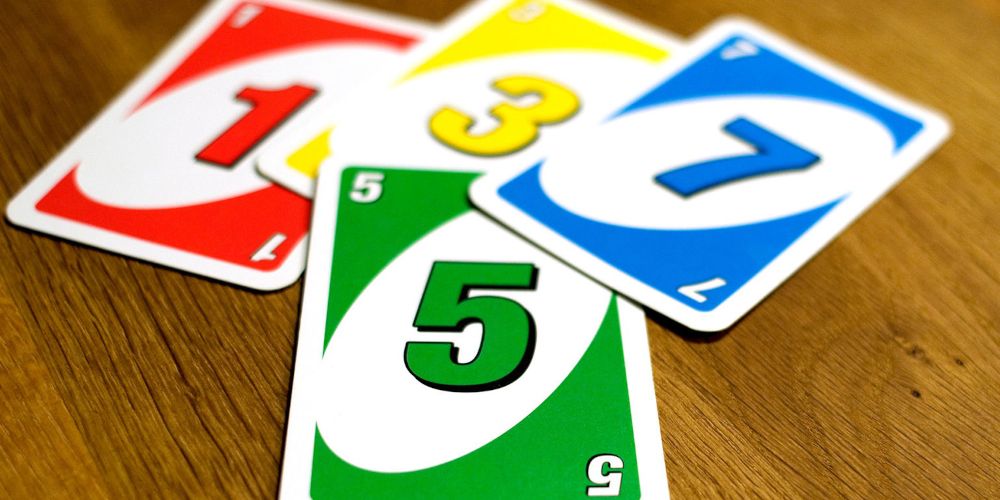While growing up, my house only had three games for the family to play: Monopoly, Uno, and a weird dexterity game called Jumpin' Monkeys that involved catapulting plastic monkeys onto a plastic 3D model of a tree and hoping they clung on.
I'm sure you can guess which game got the most play.
Uno is a classic, and for good reason: it's simple to learn, it's easy to play, it can accommodate a large group of players, it has "Take that!" cards that are a blast for friends to slam on each other, and it's interesting enough for all ages.
But even at a young age, my friends and I quickly understood that Uno's official rules didn't quite unlock the game's full potential. We started fooling around with experimental house rules—as most kids are wont to do—and soon found that a few simple tweaks were all it took to hoist the fun of Uno to greater heights.
If you aren't familiar with the official rules, check out Original Uno Rules.
To be fair, the official Uno rules aren't that bad. The Draw cards are fun to play, the Skip and Reverse cards add some comedic and strategic value, and the Wild cards give you options when you're stuck with an unfortunate hand.
The main problem with official Uno is that there aren't enough interesting decisions to make when it comes around to your turn—and when playing with more than three or four players, you could easily spend more time doing nothing than actively engaged with the game.
It's rather predictable and robotic: you either play a card, or draw a card and hope it can be played. Can't play it? Turn's over!
The Ultimate Uno Ruleset spices things up with four new rules:
1. Keep Drawing Cards
If it's your turn and you can't play a card, you keep drawing from the draw deck until you get a card you can play. If someone interrupts your turn (using one of the additional rules mentioned below), then you can stop drawing cards.
2. Anyone Can Play Identical Cards
If you have the exact same card (both color and value) as the last played card, you can play it—even if it isn't your turn.
By playing the exact same card, you essentially skip everyone and it's as if you just played your turn. Of course, someone else could also play the exact same card after you.
You must play cards one at a time; if you have multiple identical cards, you can't slap them all down in one go.
If multiple players play the same card at the same time, they all count and the game continues from whoever's card ended up on top.
3. Anyone Can Play Wild Cards
If you have a Wild card, you can play it at any time—even if it isn't your turn—and you get to pick which player gets the next turn.
Playing a Wild lets you skip everyone, reset the flow of the game whenever you want, and corner someone if you know they don't have a certain color in their hand.
This makes the value of Wilds skyrocket: instead of saving them purely as defensive get-out-of-trouble cards for the end game, you can play them offensively at any time.
(Optional) We also like to play such that you cannot end with a Wild as your last card. If you do, you have to draw four.
4. Anyone Can Chain Draw Cards
If a Draw card is played, you can follow up with a Draw card of the same kind—even if it isn't your turn.
Meaning, Draw Twos can only be chained with Draw Twos and Draw Fours can only be chained with Draw Fours.
In the case of Draw Twos, they can be chained even if they aren't the same color. The player on the receiving end has to draw cards equal to the sum of all Draw cards played.
Ultimate Uno Is More Interesting
My favorite thing about playing with these extra rules is that games play out much more frantically as players vie to play their cards out of turn as efficiently as they can.
Since everyone can potentially play a card at any moment of the game, everyone leans in on the edge of their seats and players actually pay attention to what's happening!
Instead of twiddling your thumbs while waiting for your turn to arrive, the out-of-sequence playing of cards means hands are emptied a lot faster.
In short, these rules turn Uno from a mediocre game into an exciting game. I've also found that games tend to end much quicker this way, so more games can be played per hour!

